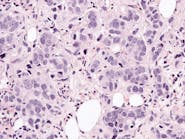A research team co-led by UCLA investigators has shown that an immunotherapy drug combination can be an effective second-line therapy for patients with an aggressive and deadly type of melanoma that is resistant to the widely used immunotherapy drugs known as PD-1 inhibitors.
In clinical trials, the investigators found that the combination therapy can extend the amount of time patients live without their cancer worsening, known as progression-free survival, and helps overcome resistance to prior immunotherapies, allowing more patients to benefit from the treatment.
The approach combines the immunotherapy drugs ipilimumab and nivolumab, a combination that not only showed a longer progression-free survival, but also a greater overall response rate to treatment compared to those who received the current standard therapy of ipilimumab alone.
The findings of the multicenter clinical trial were conducted by the SWOG Cancer Research Network, a group funded by the National Cancer Institute, and were reported in the journal Nature Medicine.





